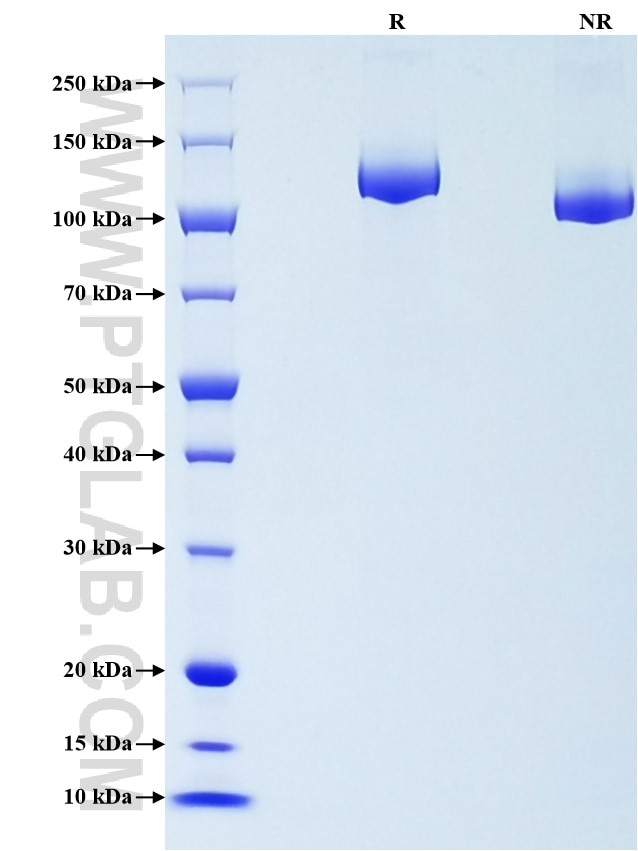Recombinant Mouse CD163 protein (His Tag)
Species
Mouse
Purity
>90 %, SDS-PAGE
Tag
His Tag
Activity
not tested
Cat no : Eg0794
Validation Data Gallery
Product Information
| Purity | >90 %, SDS-PAGE |
| Endotoxin | <0.1 EU/μg protein, LAL method |
| Activity |
Not tested |
| Expression | CHO-derived Mouse CD163 protein Val39-Thr1045 (Accession# Q2VLH6-1) with a His tag at the C-terminus. |
| GeneID | 93671 |
| Accession | Q2VLH6-1 |
| PredictedSize | 109.5 kDa |
| SDS-PAGE | 110-130 kDa, reducing (R) conditions |
| Formulation | Lyophilized from 0.22 μm filtered solution in PBS, pH 7.4. Normally 5% trehalose and 5% mannitol are added as protectants before lyophilization. |
| Reconstitution | Briefly centrifuge the tube before opening. Reconstitute at 0.1-0.5 mg/mL in sterile water. |
| Storage Conditions |
It is recommended that the protein be aliquoted for optimal storage. Avoid repeated freeze-thaw cycles.
|
| Shipping | The product is shipped at ambient temperature. Upon receipt, store it immediately at the recommended temperature. |
Background
CD163, also known as M130, is a membrane glycoprotein which belongs to the scavenger receptor superfamily. It is an acute phase-regulated and signal-inducing macrophage protein expressed exclusively in monocytes and tissue macrophages. CD163 mediates endocytosis of haptoglobin-haemoglobin complexes. The uptake of haptoglobin by macrophages contributes to the recycling of iron and also to the inflammatory response. Soluble CD163 (sCD163), as a result of ectodomain shedding during inflammatory activation of macrophages, circulates in blood and has been suggested as a plasma/serum marker for macrophage activity.
References:
1. S K Law, et al. (1993) Eur J Immunol. 23(9):2320-5. 2. M Kristiansen, et al. (2001) Nature. 409(6817):198-201. 3. Anders Etzerodt, et al. (2013) Antioxid Redox Signal. 18(17):2352-63. 4. H J Møller, et al. (2002) Scand J Clin Lab Invest Suppl. 237:29-33.
